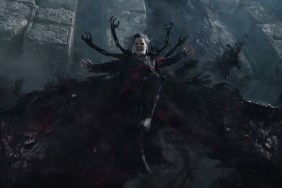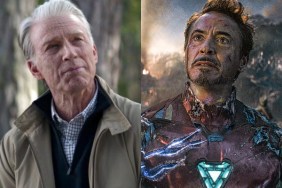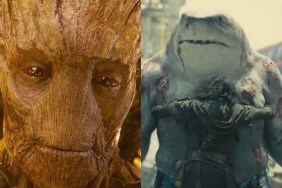Movies don’t exist in a vacuum. Audiences bring their expectations into the theater, and filmmakers bring the lessons they’ve learned from earlier movies into the production process. Declaring a movie “good” or “bad” isn’t good enough: if we’re going to make better movies, be wiser consumers and have a better sense of what’s “good” or “bad” in the first place, we also have to look at every movie and ask ourselves… What Have We Learned?
Thor: The Dark World is the eighth film in a franchise that only dates back five years, when Iron Man became a surprise smash in 2008. Miraculously, all eight films in the Marvel Cinematic Universe – Iron Man, Incredible Hulk, Iron Man 2, Thor, Captain America: The First Avenger, The Avengers, Iron Man 3 and now Thor: The Dark World – range from “okay” to “great.” We may balk at Iron Man 2, and Incredible Hulk may not be everyone’s favorite, but if those are the worst films in an eight film franchise, that’s one damned good franchise.
But that doesn’t mean Marvel Studios can’t fail us, and the mixed bag that was Thor: The Dark World – some folks like it better than Thor, but nobody seems to be claiming its the best the studio has to offer – offers the Marvel Cinematic at its best and also its worst. Some cracks are starting to show in the series’ façade, some minor issues that need to be dealt with now before they become distracting, or even serious problems down the road. We’re going to highlight some of those in What Have We Learned, and also assess what new pieces of the ongoing Marvel Universe plotline have been gleaned as a result of the film’s story and mid-credits revelations.
So, with that being said, click through the following with an ENORMOUS SPOILER ALERT ringing through your mind…
William Bibbiani is the editor of CraveOnline’s Film Channel and co-host of The B-Movies Podcast. Follow him on Twitter at @WilliamBibbiani.
Thor: The Dark World - What Have We Learned?
-
Marvel Studios Isn’t Going Anywhere

As of this writing, Thor: The Dark World racked up an estimated $86.1 million domestically. That adds up to over $327 million internationally. Not too shabby. That’s the best opening for any Marvel movie that didn’t have Iron Man in it, meaning The Avengers probably raised awareness of Marvel Studios’ other heroes.
Thor: The Dark World didn’t open half as big as Iron Man Three ($173 million domestic), but that film opened in the summer, which inflates the figures a bit. In any case, these numbers have got to be encouraging to both Marvel Studios and Disney. There’s no end to the Marvel Cinematic Universe in sight. In fact…
-
Thor 3 is a Necessity

After a pretty big cliffhanger, in which Loki secretly took control of Asgard by impersonating Odin, a third Thor is more or less a done deal. It’s a good thing Thor: The Dark World has made so much money already, because that means a third film isn’t just required to resolve the subplot, but also financially viable for the studio.
As for where the Thor franchise goes from here, we wouldn’t be surprised if the word “Ragnarok” turns up in the subtitle next time around. In any case, for Thor 3 and any other future films in the Marvel Studios franchise, there’s a big lesson Marvel needs to take away from Thor: The Dark World…
-
These Aren't Standalone Movies Anymore

Thor: The Dark World would be absolutely impenetrable to anyone who didn’t see both the original Thor and The Avengers.
More than that, the TV series “Agents of S.H.I.E.L.D.” is making the organization seem so ubiquitous that it’s hard to believe they didn’t show up when the fit hit the shan in England at the end of Thor: The Dark World. Are supposed to believe that S.H.I.E.L.D. has an office in Morocco and not in England?
Hey Marvel, if you’re already assuming audiences have the rest of your movies and TV shows, pay them a little lip service or we’re going to start asking questions that you can’t adequately answer. And another thing…
-
It’s Okay to Let a Marvel Movie Breathe

Thor: The Dark World clocked in at 112 minutes. That’s not very long as epic action extravaganzas go. It’s okay to leave in some of the character development both Christopher Eccleston and director Alan Taylor told us was cut from the finished film. Malekith was a pretty underdeveloped villain, and a few more scenes to flesh him out wouldn’t have killed the movie… it would have made it better.
Also, while we suspect that Jaimie Alexander’s well reported on set injury may have been responsible for cutting this subplot short, Marvel introduced a love triangle between Thor, Jane and Sif and never went anywhere with it. Hey Marvel, either let these things play out or stop teasing us, okay?
-
Guardians of the Galaxy is Going to Be Weird

Actually, strike that… feel free to tease us if the teaser is as weird-looking as the mid-credits tie-in to James Gunn’s Guardians of the Galaxy, which promised us a sci-fi adventure featuring Benicio Del Toro in a truly bizarre outfit and haircut, camping things up already. The movie doesn’t come out until August 1, 2014, and already we can’t wait for what looks like the most visually unusual and just plain odd Marvel Studios movie so far. Especially since it looks like Guardians of the Galaxy will finally start paying off on the teaser from the end of The Avengers, which promised us Thanos and – by extension – one of the biggest Marvel stories of all time: The Infinity Gauntlet.
And finally, about that Infinity Gauntlet…
-
The Infinity Stones Aren’t Gems Anymore

The teaser for Guardians of the Galaxy revealed that the Infinity Gems of the comics are now the Infinity Stones as far as the movies are concerned. What’s more, we’ve already seen two of them: The Tesseract, which Kevin Feige already clarified is the Space Stone, and the Aether, which given the plot of Thor: The Dark World – in which the Aether was going to be used to rewrite reality – is probably the Reality Stone.
Have we seen the other Infinity Stones already? It’s possible: Loki’s staff had a mysterious gem in the tip that controlled people’s minds (the Mind Stone?), and it didn’t work on Tony Stark because of the power battery he invented (the Power Stone? it may be a stretch, but who knows?).
In any case, Feige told us that although they’ll play an important part in Guardians of the Galaxy, the Infinity Stones will continue to play a role in the Marvel Cinematic Universe through Phase Three and possibly beyond.









